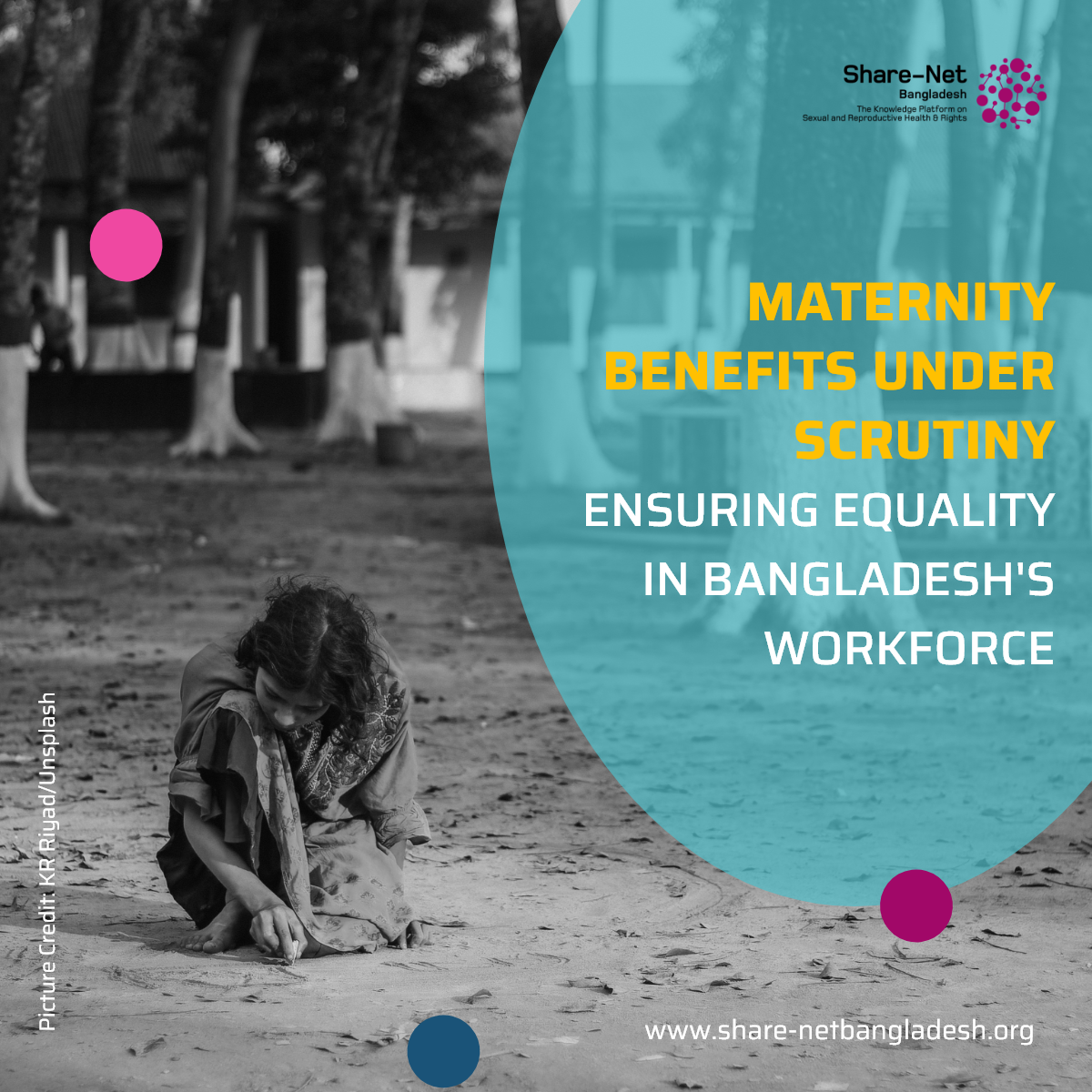Maternity Benefits Under Scrutiny: Ensuring Equality in Bangladesh’s Workforce
Maternity benefits play a crucial role in ensuring women’s rights at the workplace. In Bangladesh, this issue is intertwined with broader discussions of sexual and reproductive health and rights (SRHR), as it impacts women’s ability to balance work and family life without facing discrimination.
According to the Bangladesh Labour Act 2006 (BLA), women are entitled to 16 weeks of maternity leave—eight weeks before delivery and eight weeks after. This law aims to provide financial security and time for women to recover from childbirth and care for their newborns. However, the nuances of this provision reveal gaps that disproportionately affect women in the workforce, especially in terms of reproductive rights and workplace equality.
Under Section 46 of the BLA, maternity benefits are available only if a woman has worked for the same employer for at least six months prior to her delivery. This requirement means that newly employed women, who may still be adjusting to a new job, are excluded from accessing these essential benefits. Furthermore, if a woman already has more than one child at the time of delivery, she is not entitled to maternity benefits, though she can still take maternity leave.
These restrictions raise questions about the inclusivity of the law, especially in relation to women’s reproductive rights. For instance, should a woman be denied her right to financial security simply because she has more than one child? Such provisions may unintentionally penalise women for their reproductive choices, highlighting the need for stronger advocacy around SRHR issues in the workplace.
Additionally, the Bangladesh Labour Act does not apply uniformly across all sectors. Certain industries are exempt from the law, and managerial or administrative staff are also excluded from its protections. This creates a two-tier system where women in leadership positions or certain sectors are left without the legal protections that workers in other fields enjoy. Moreover, the law is limited to the formal sector, leaving women in the informal sector—such as domestic workers—without any guaranteed maternity benefits. These gaps reinforce structural inequalities and continue to undermine women’s rights to sexual and reproductive health in the workplace.
Recent developments, such as the Bangladesh Labour (Amendment) Act 2023, offer some hope for progress. The proposed amendment would extend maternity leave from 112 days to 120 days, marking a positive step. However, as advocacy groups point out, this incremental change still falls short of addressing the more significant issues within the current legal framework. Comprehensive reforms are needed to ensure all women, regardless of their job type or family size, can access maternity benefits.
Rights advocates argue that until such changes are made, the law will continue to reinforce traditional gender roles, where the burden of balancing work and family falls disproportionately on women. True progress requires a policy overhaul that prioritises women’s rights to make reproductive decisions without facing workplace penalties. By recognising the specific disadvantages women face in the labor market, Bangladesh can move beyond mere promises of equality and begin closing the persistent gender gaps.
Ultimately, maternity benefits are more than just a legal right; they are central to the broader conversation around sexual and reproductive health and rights. Ensuring that all women can access these benefits is key to creating a more equitable and supportive workplace environment.
Source: The Daily Star
Picture Credit: Unsplash


